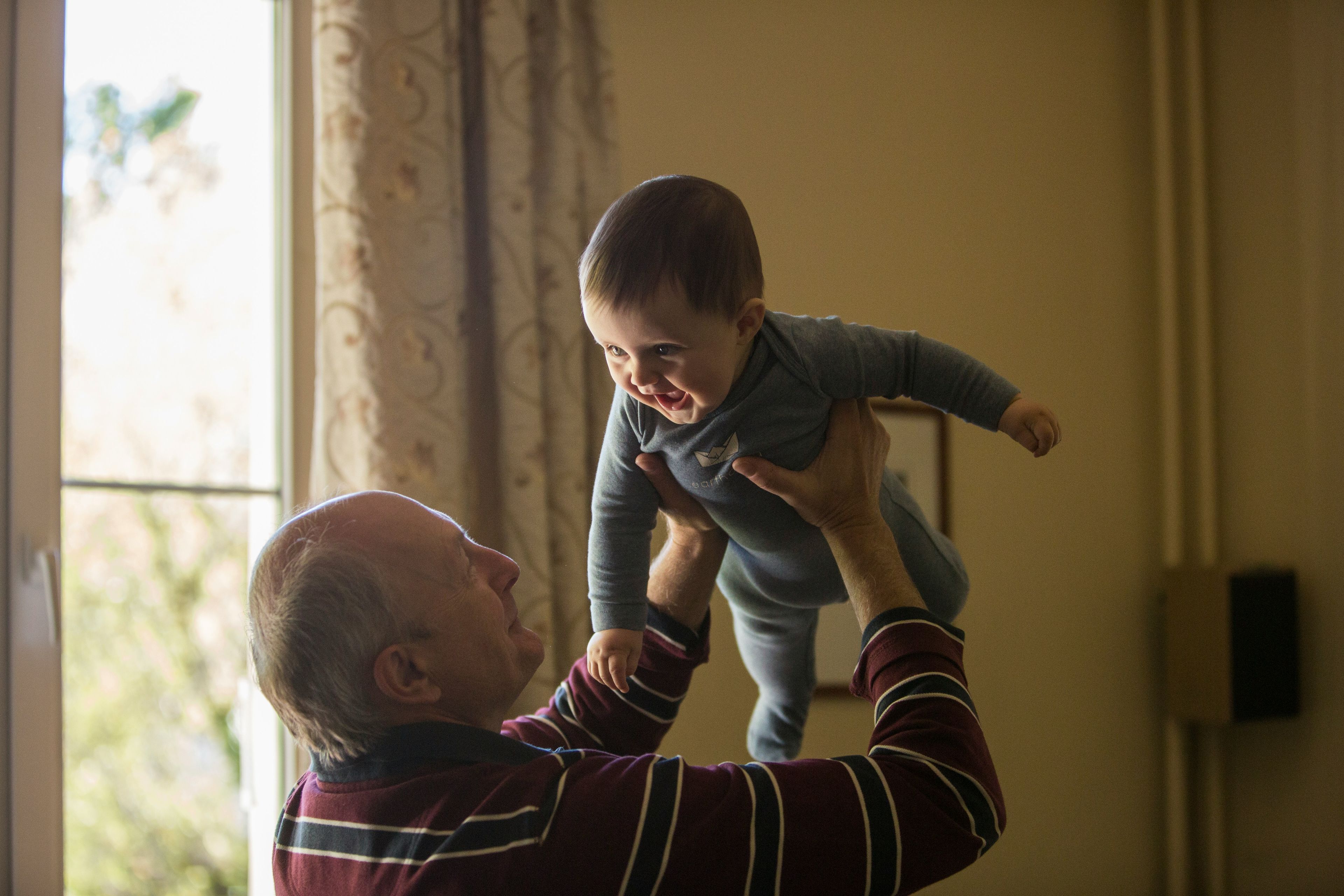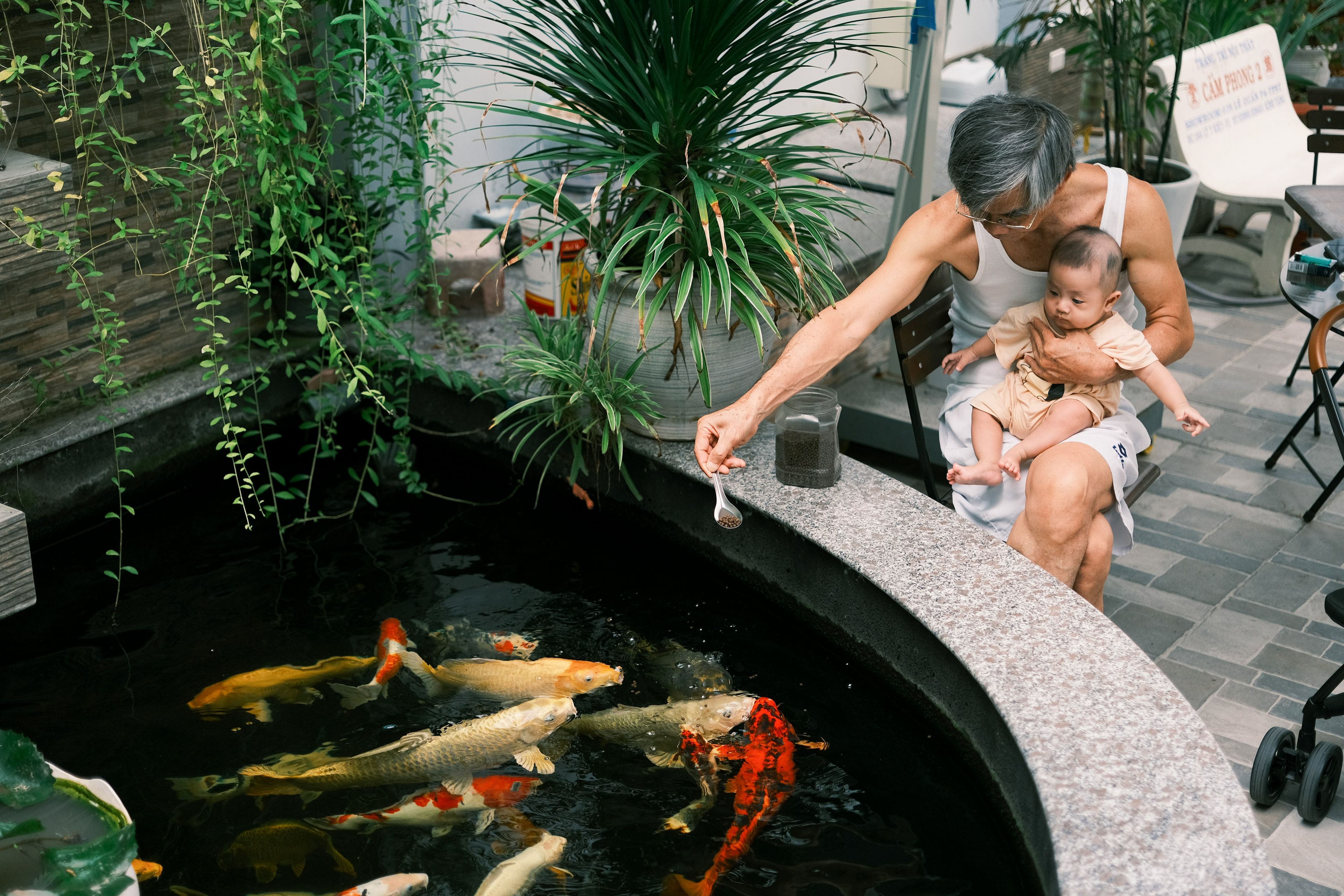Grandchildren Are Not A "Do-Over" For Parents Of Adult Children
If you do not have a healthy relationship with your adult child, your grandchildren are not a “do-over.”

Dear Grandparents,
If you do not have a healthy relationship with your adult child, your grandchildren are not a “do-over.” They are not a second attempt at parenthood or a chance for you to get it right this time.
It’s commendable that you want to be a good grandparent to these new children. That is a good thing. People grow, change, and learn new ways of being in the world. You may have become a different person than you were when you were raising your children. Maybe you’re less stressed and have more time to devote to your grandchild than you did to your children. Being a grandparent is often easier than being a parent. The child goes home at the end of the day; you aren’t tasked with major decision-making or responsible for the child’s life. It makes sense why you would be able to show up differently.
And this is extremely painful for your child: the adult in front of you, your grandchild’s parent.
If you cannot find a way to repair the relationship with your adult child, your role in that grandchild’s life may be at risk.
I want to add a disclaimer here. There are certainly some of you reading this who have adult children who are unable to care for their children at this time. Maybe your adult child is struggling with addiction, a mental health diagnosis, or another issue that prevents them from showing up as a healthy parent. Some grandparents find themselves parenting their grandchild because they have no other choice. If your adult child is abusing or neglecting their child, you may have to step in to protect that child without repairing things with your adult child. I know this happens, and this article may not fully apply to you if you are in this situation.
Your Adult Child Is Watching
When a grandparent suddenly finds the capacity to show up in ways they couldn’t for their own child without taking accountability for the past, the adult child is left with a highly complex type of grief. They’re happy their child is getting this version of their parent, and they’re grieving the fact that they were subjected to entirely different conditions.
This isn’t about the adult child being “jealous” of their child or competing with them. It is a deeply complex mix of emotions. They are likely experiencing a unique mixture of grief, fear, gratitude, and confusion.
They may be wondering,
- How did you learn not to be abusive, neglectful, or cruel?
- What was so wrong with me that I didn’t deserve this treatment?
- Are you going to stop loving them when they mess up, too?
- Is this real?
- Do you just love them more?
Your adult child is watching you be different without taking ownership, which hurts. It also leaves them wondering if this change is legitimate or if you will suddenly revert to old behavior when their child has their own opinions, wants, and needs.
- Will you change when the child is no longer a baby?
- How will you behave when your grandchild has a different political belief?
- What will you do if they decide their sexuality isn’t what you deem “correct”?
- How will you react if they leave your religion or choose to dress differently?
It’s a delicate dance to allow a parent who hurt you with zero accountability into your child’s life. The adult child may be left constantly wondering if the change is real, how the change manifests, and if or when the parent will revert to the previous problematic behavior.

Can An Adult Child Trust That A Grandparent Has Changed If They Take Zero Accountability?
Would you trust anyone else who hurt you this bad to be around your children without an apology or proper recognition of what went wrong?
Take a moment to think about that.
- If a teacher constantly screamed at you or your child, would you allow them to be around your child without any repair?
- If a sports coach was abusive, would you allow them to be around you or your child without repair?
- What about a friend? A neighbor? A babysitter?
This is what we are asking adult children to do with grandparents who were harmful parents. We are asking them to ignore all of the past and to entrust the person who hurt them the most with their child. We absolutely would not do this with anyone else.
So, can an adult child trust a grandparent if they have taken zero accountability?
- If your parent hit you and they do not apologize for the pain they caused, how do you know they won’t do it again?
- If your parent neglected you and they do not apologize for the harm they caused, how do you know they won’t do it again?
- If your parent put you in danger and they do not apologize for the harm they caused, how do you know they won’t do it again?
- If your parent ridiculed and shamed you and they do not apologize for the harm they caused, how do you know they won’t do it again?
Yes, People Can Change
Parents can become different grandparents. They can learn new ways of interacting with children and change their ways. I have seen this happen, and it is possible.
Here is what is required for that change to be legitimate and believable:
- Acknowledgment that what happened in the past was not ok, harmful, abusive, neglectful, and/or cruel, etc. This may come as an apology or a statement demonstrating that the grandparent/parent knows exactly what happened and why it was harmful.
- A plan to repair and change in the future. This may include medical treatment, therapy, medication, participating in groups, reading books, listening to their child, journaling, prioritizing their emotional and physical health, and/or discontinuing the use of substances. etc.
- Consistently demonstrating they’ve changed and making amends when old behaviors show up. Everyone messes up, and change takes time. Adult children who were harmed by their parents will want to see that the parent is attempting to take responsibility for that behavior when it happens and that they are still working on it.
- Respecting boundaries and parenting practices. Grandparents must learn to respect the parenting decisions and boundaries that are made by their child. This can be seen as a sign of respect and demonstrates that the grandparent is trying to be a partner in their grandchild’s life, not an authority figure over everyone.
If the grandparent does not repair the relationship with their adult child and continues to behave in an unsafe or inappropriate way, why would they have a right to be in that child’s life? We would not allow any other adult to behave this way and to have access to the child.
Grandparents, you can change. You can be different. You can struggle as a parent and be a wonderful grandparent. And, if you want to play an important and positive role in your grandchild’s life, you must prioritize the relationship between you and your adult child.
If you do not have a healthy relationship with your adult child, your grandchildren are not a “do-over.” They are not a second attempt at parenthood or a chance for you to get it right. Start with them.